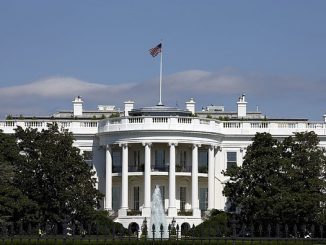1) Yield-seeking — it is alive and well. Check out this article on pay-in-kind bonds. With PIKs, one can be concerned with the return on the money, and the return of the money at the same time. The history of returns on PIK bonds are such that you are usually better off putting the money under a mattress.
2) More yield-seeking — spreads on mortgage bonds over Treasuries are at a 17-year low, and as I measure it, and all-time low. Investors have gone maniac for GSE insured mortgage bonds.
3) I am as close to neutral on PIMCO as anyone I know. I have written articles explaining how they make money, which is different from the public pronouncements of Gross and McCulley. The current missive of Gross impresses me as fair, recognizing the limits of the Federal Government and the Fed. PIMCO is taking less risk, selling US and UK debt, and buying German debt. This is conservative; they are giving up yield.
4) Bruce Krasting notes that the Social Security system paid out more in 2009 than it took in. That event was not supposed to happen until 2016 or so. Aside from that, he notes the negative COLA adjustment. As for me, I look at this and say, “Whether it comes slower or faster, it will come. Medicare and Social Security will destroy the Federal budget eventually, or will be scaled back to where those that were taxed complain about it.
5) If you want to consider a technical reason for rates being so low, consider all of the mutual fund buyers. They have favored bonds. This is a contrary sign for interest rates — they are headed higher.
6) Bernanke blames bank regulation so that he can absolve monetary policy. Typical. Blame what you control less, to absolve what you control directly. A better and brighter economist (in my opinion), John Taylor disagrees. He views the mid-decade low rate policies as contributing to the lending frenzy. Don’t get me wrong. Bank regulation was lousy, but monetary policy was lousier, helping to create the boom that now gives us the bust that normalizes things.
7) How amazing was the junk bond market? Better, how amazing was the distressed debt market? Oh my, though junk bonds paced equities, distressed debt did far better. Such is the case when a turn happens; this one was forced by the US Government.
8) If you want to understand how finance reform gets blocked, read this article. Better than most, it explains the intricacies of why the Democrats have a hard time passing the legislation that the radicals would like.
9) I am not a Buffett-lover or hater. When I read his opposition to Kraft raising its bid, I said to myself, “Of course. Don’t overpay. Most deals are best avoided.” Which is true — M&A is in general a value destroyer.
10) Personal bankruptcies are rising in the US. It is a messy time.
11) Let the Chicago School of Economics die. I have already argued for their demise.
12) The CMBS market is experiencing delinquencies that have not been seen before. This is just another example of the difficulties many commercial mortgage loans are in.
13) Strip malls have high vacancy rates.
14) I appreciate Tyler Cowen’s article, suggesting that things are pretty good. We should be glad that other places in the world did well, even if we did not do so well.
- Bulenox: Get 45% to 91% OFF ... Use Discount Code: UNO
- Risk Our Money Not Yours | Get 50% to 90% OFF ... Use Discount Code: MMBVBKSM
Disclaimer: This page contains affiliate links. If you choose to make a purchase after clicking a link, we may receive a commission at no additional cost to you. Thank you for your support!




Leave a Reply